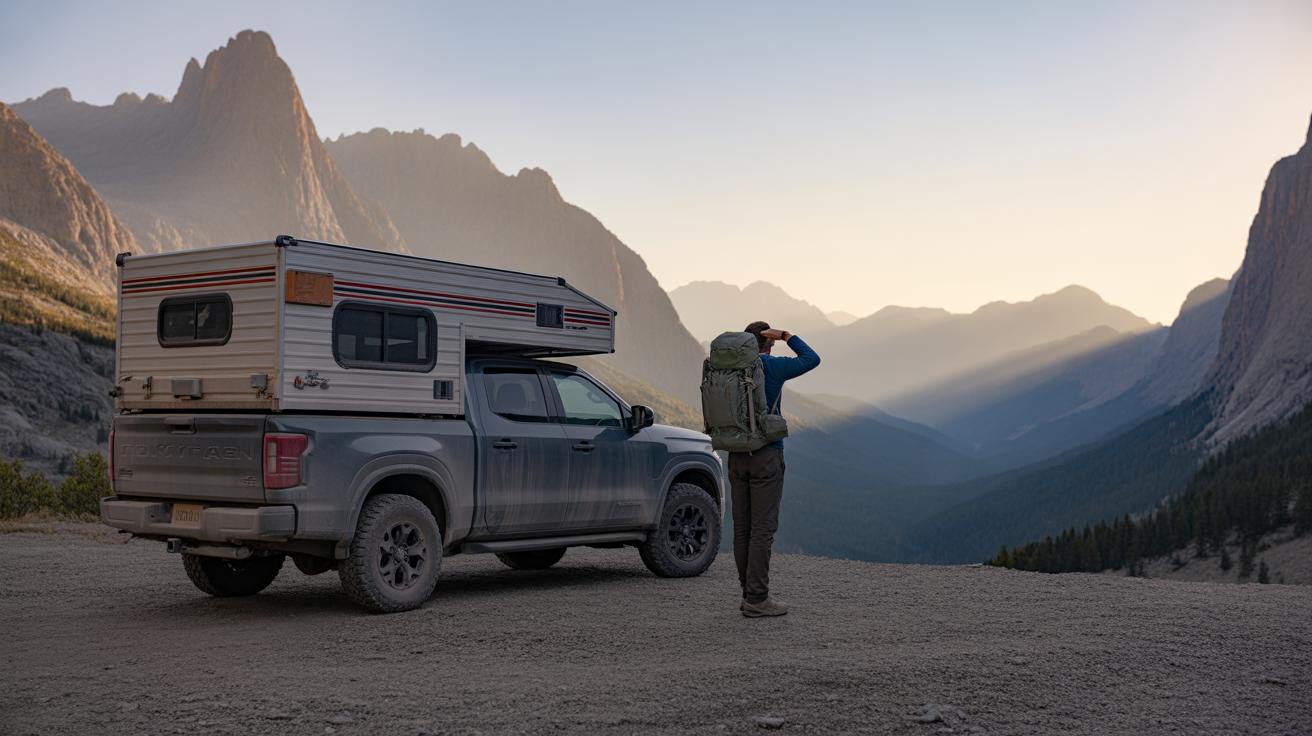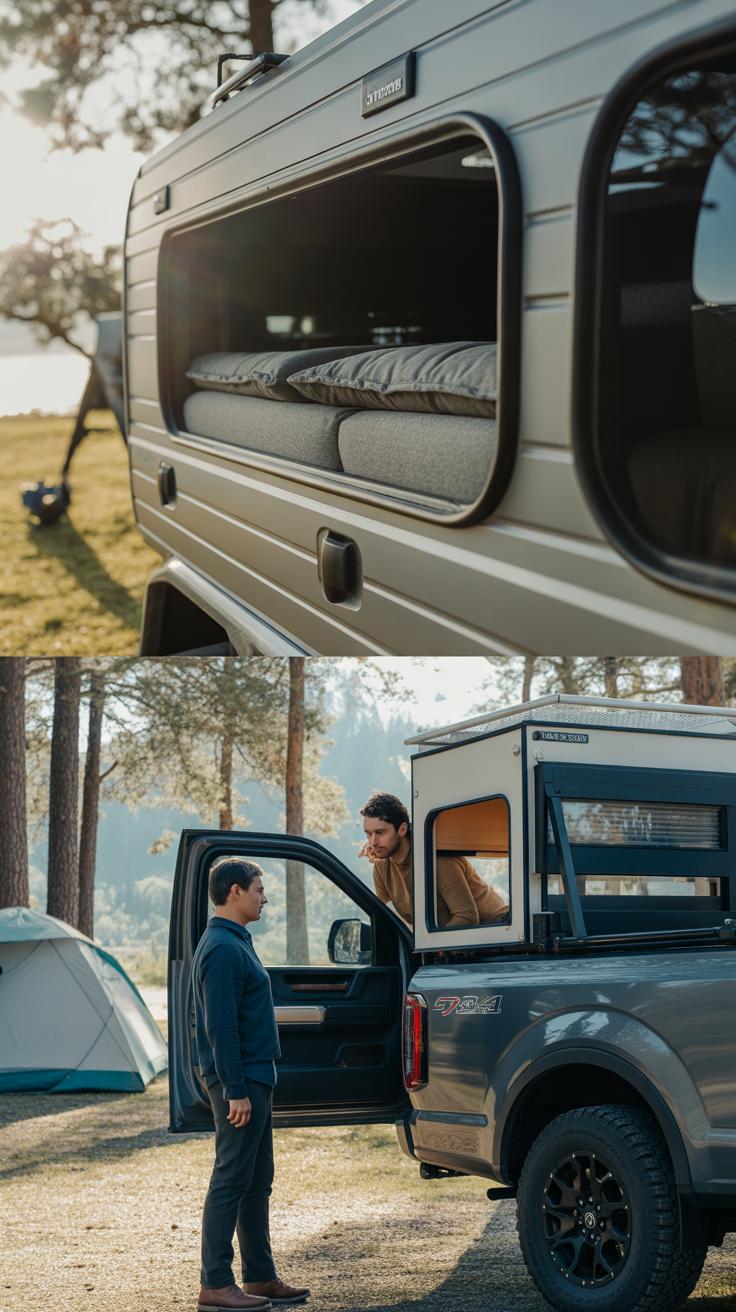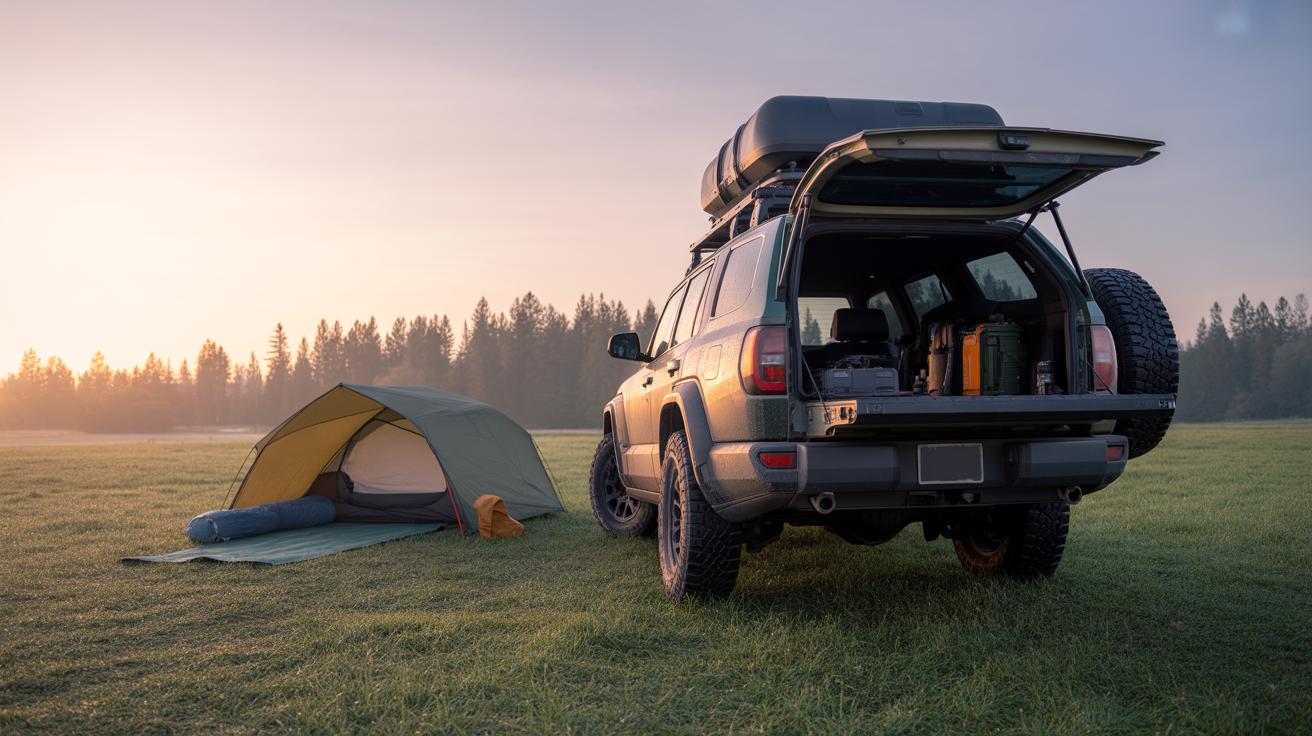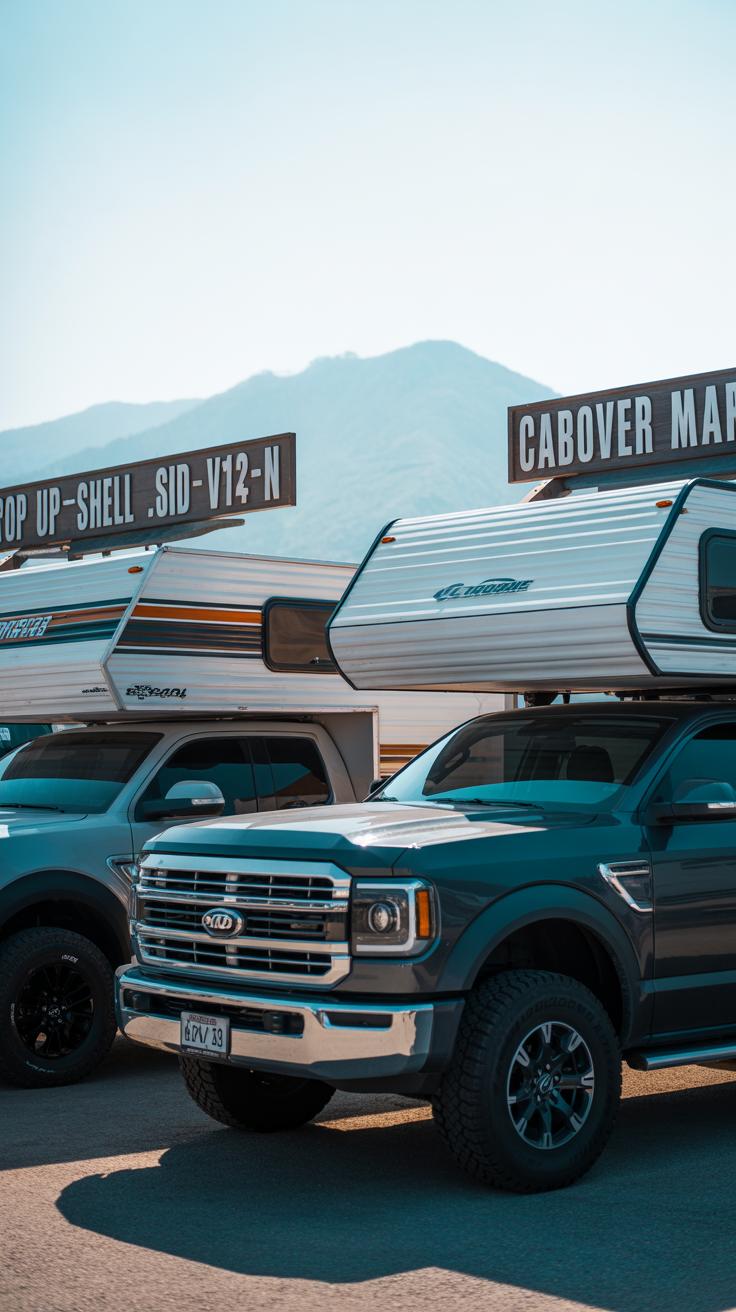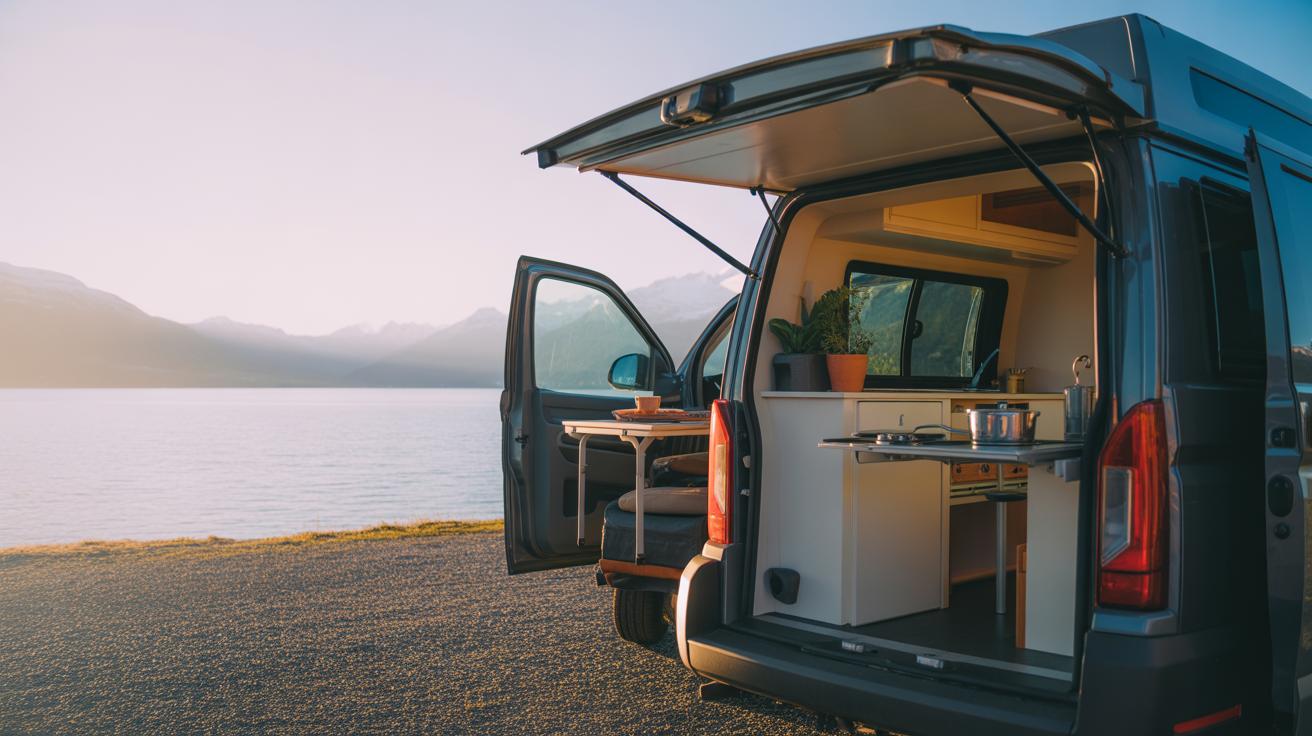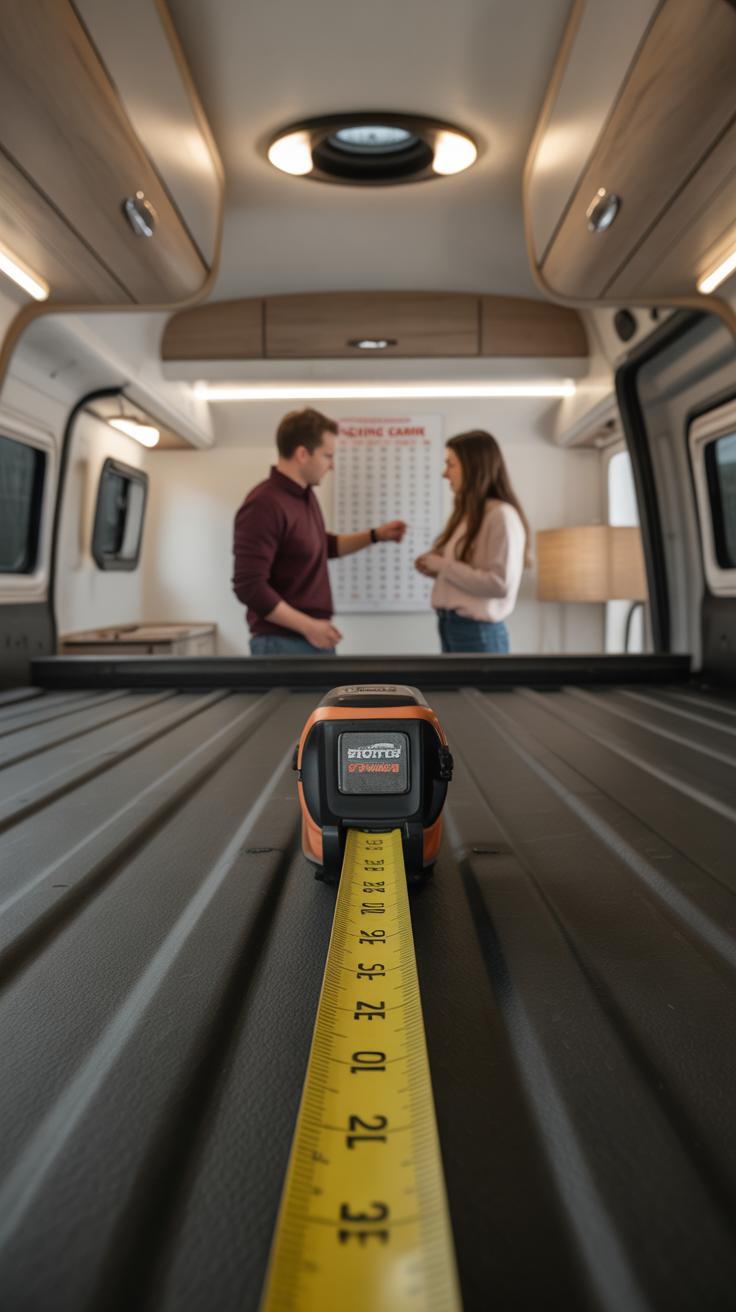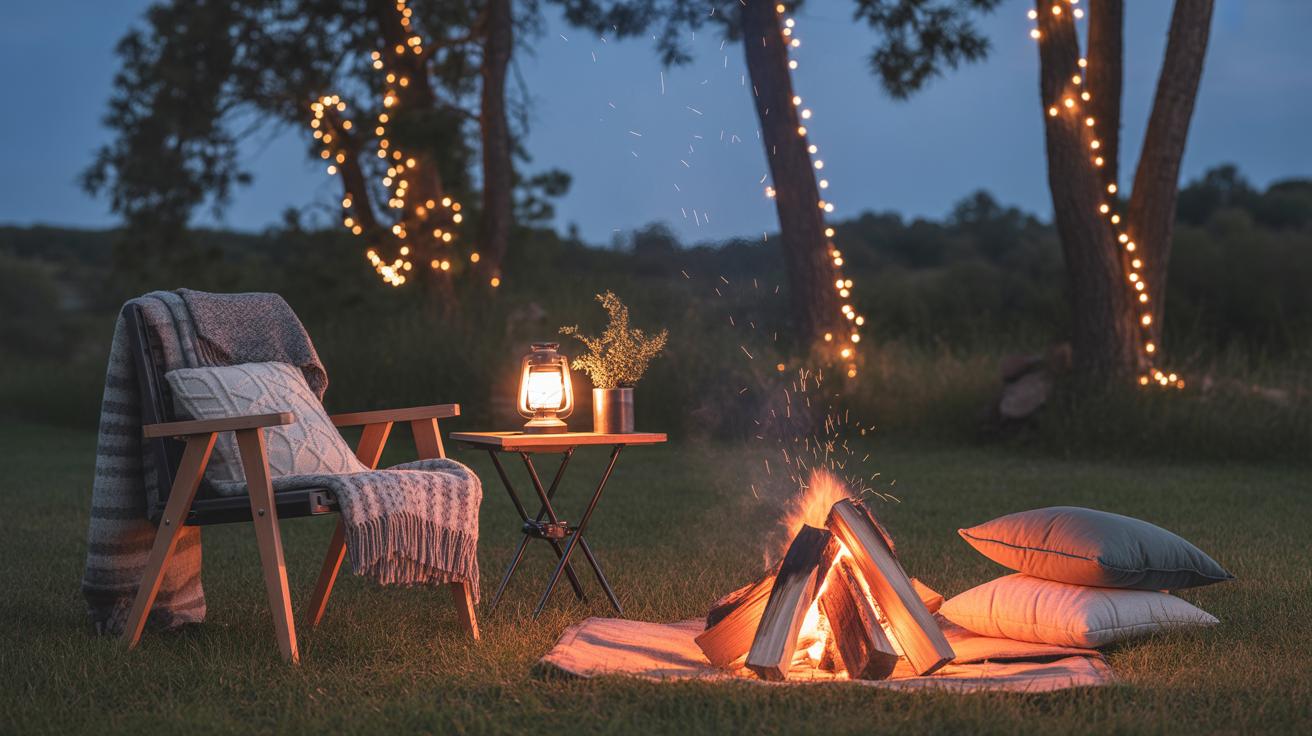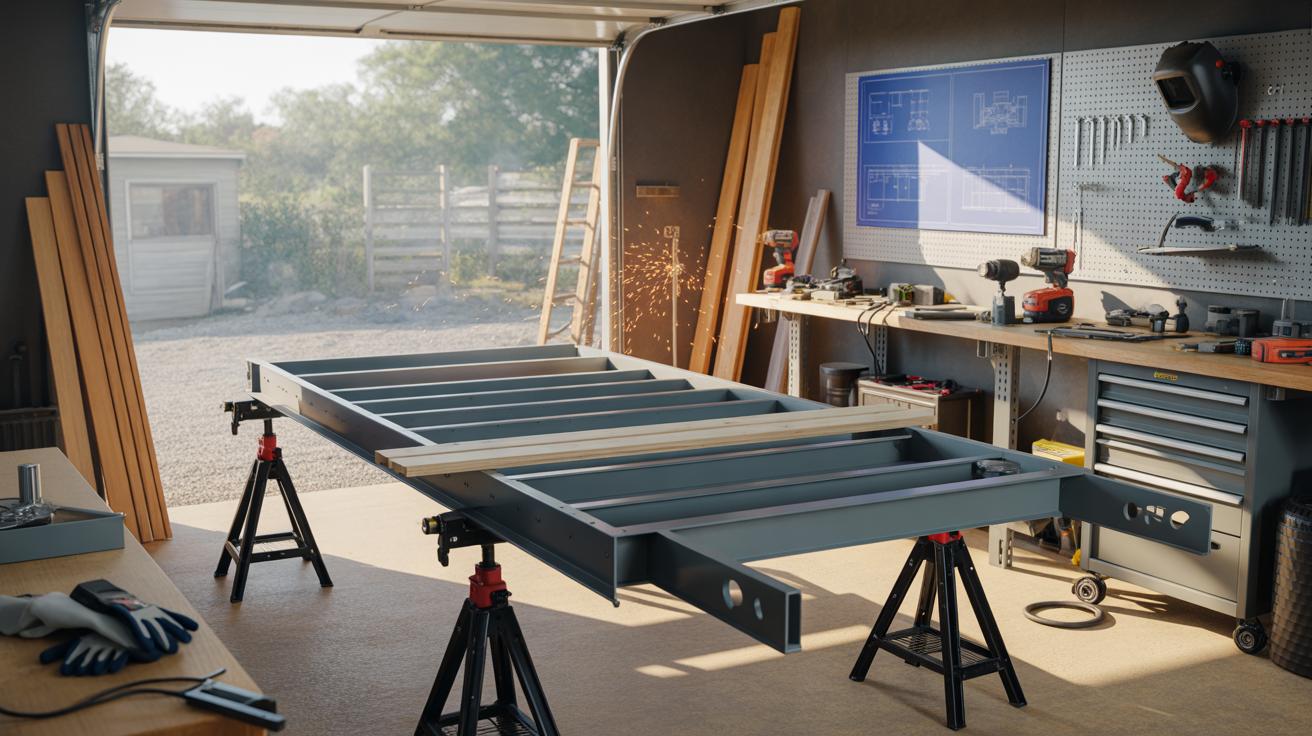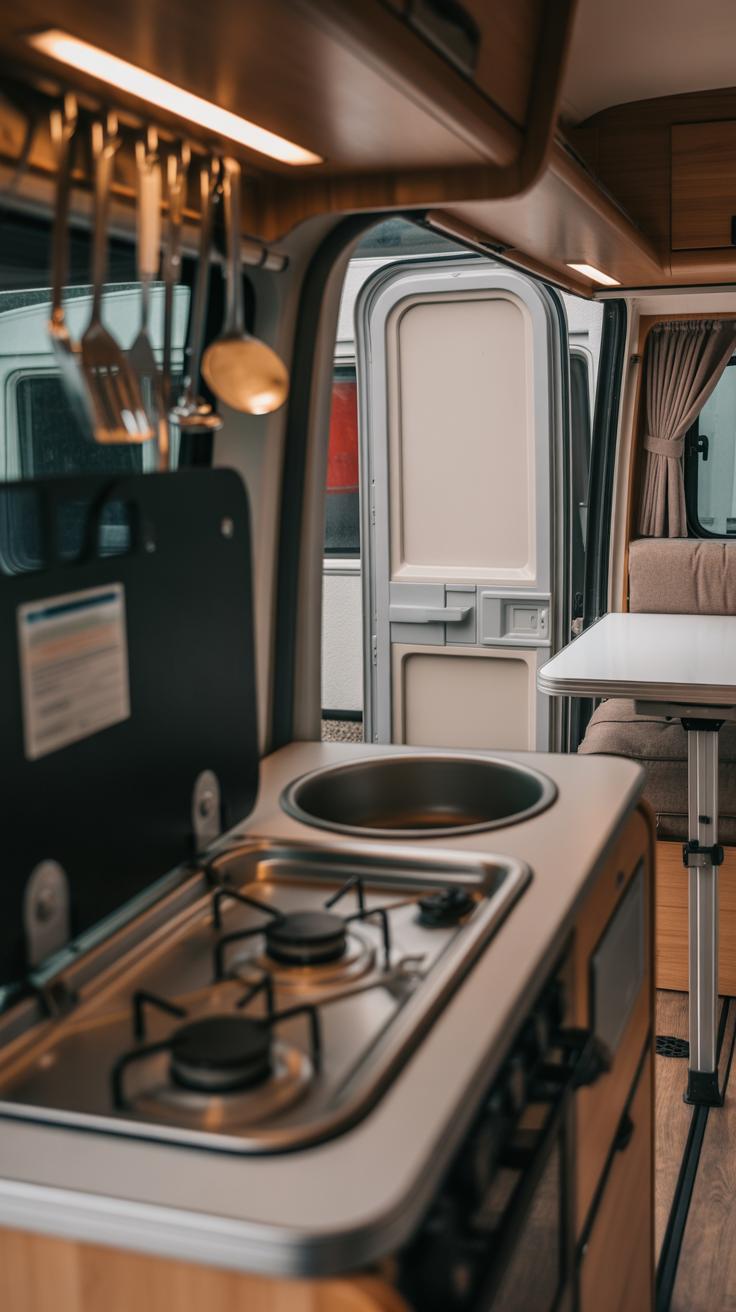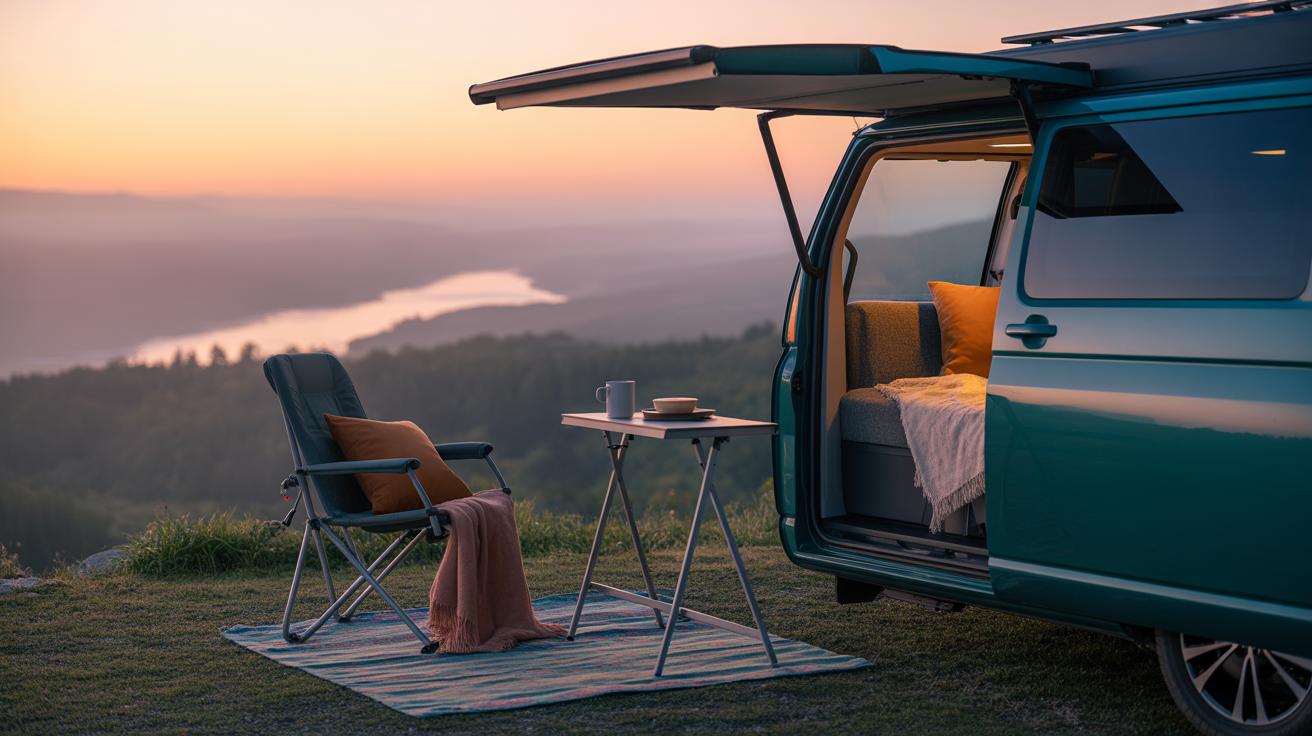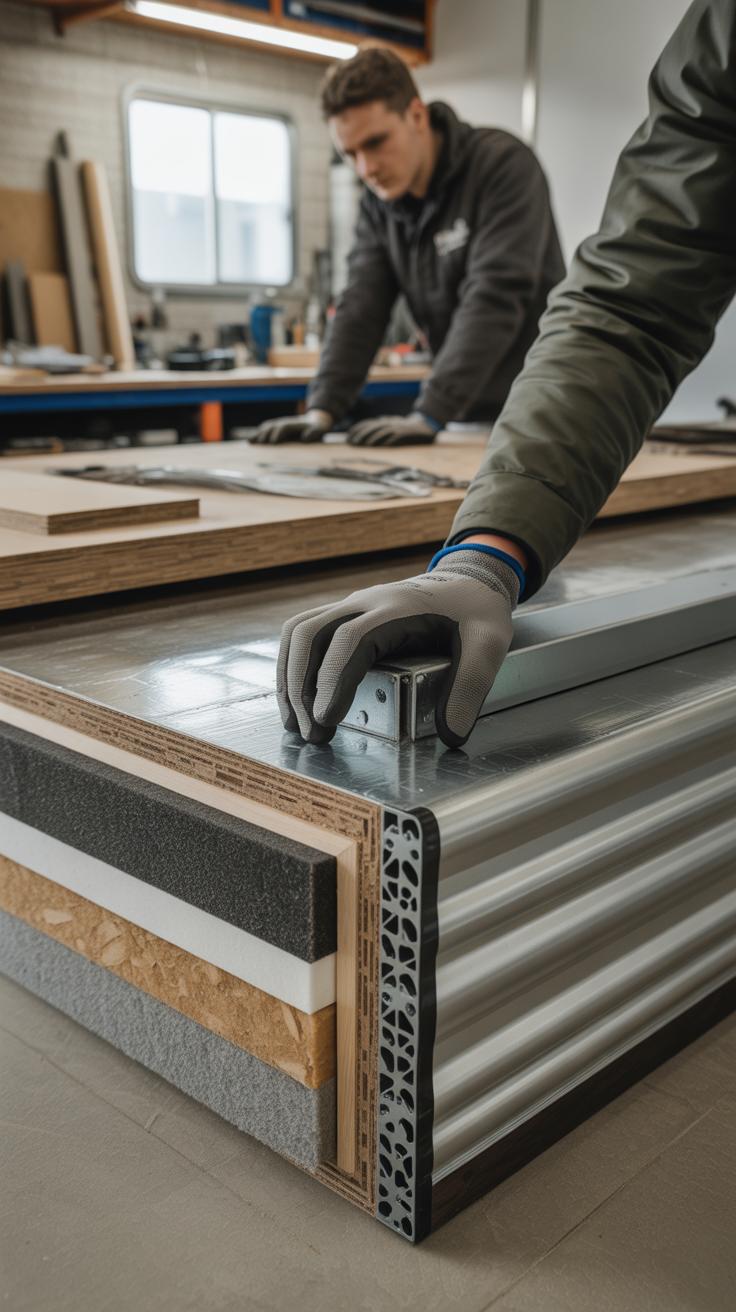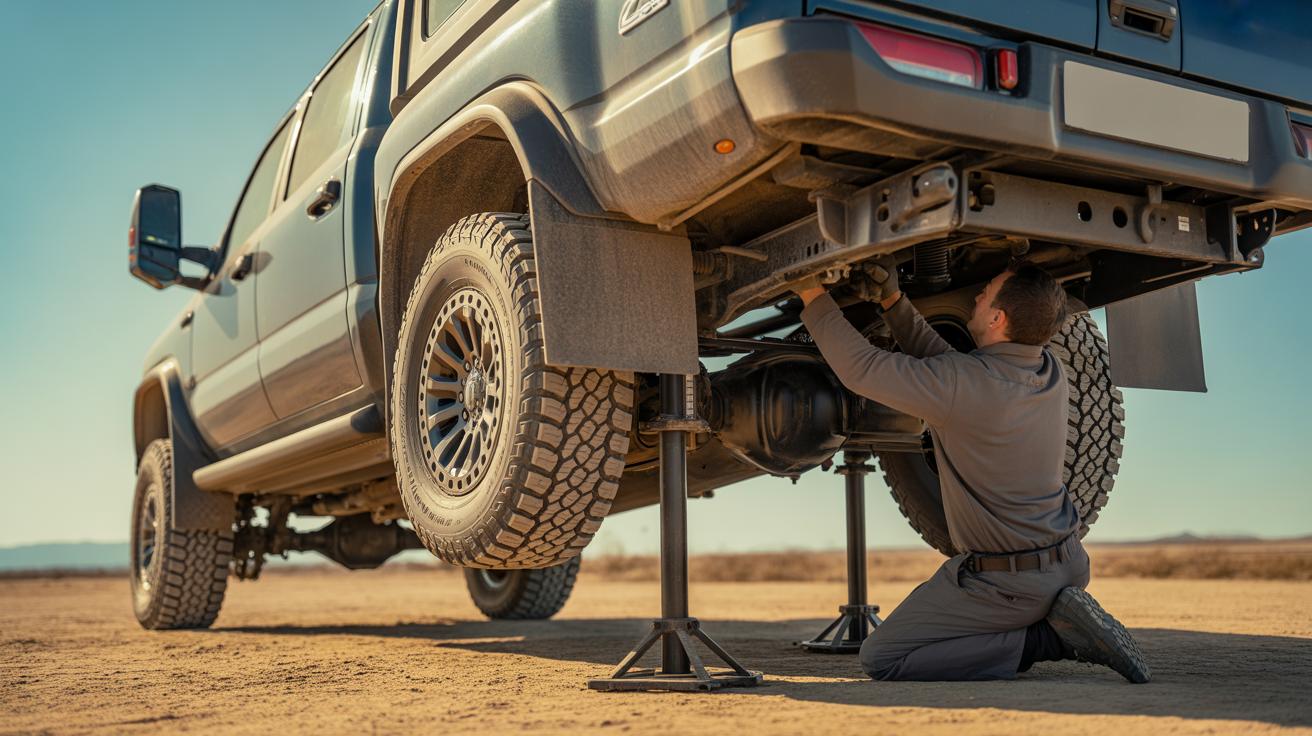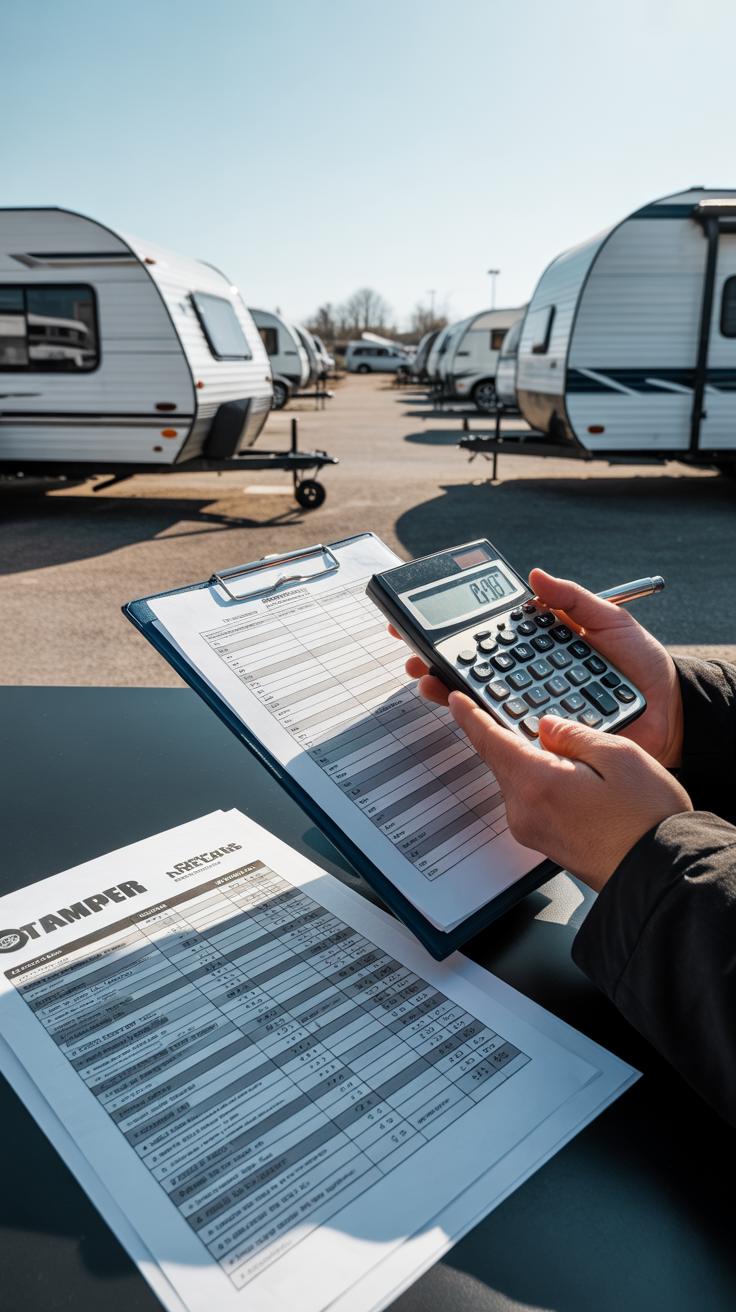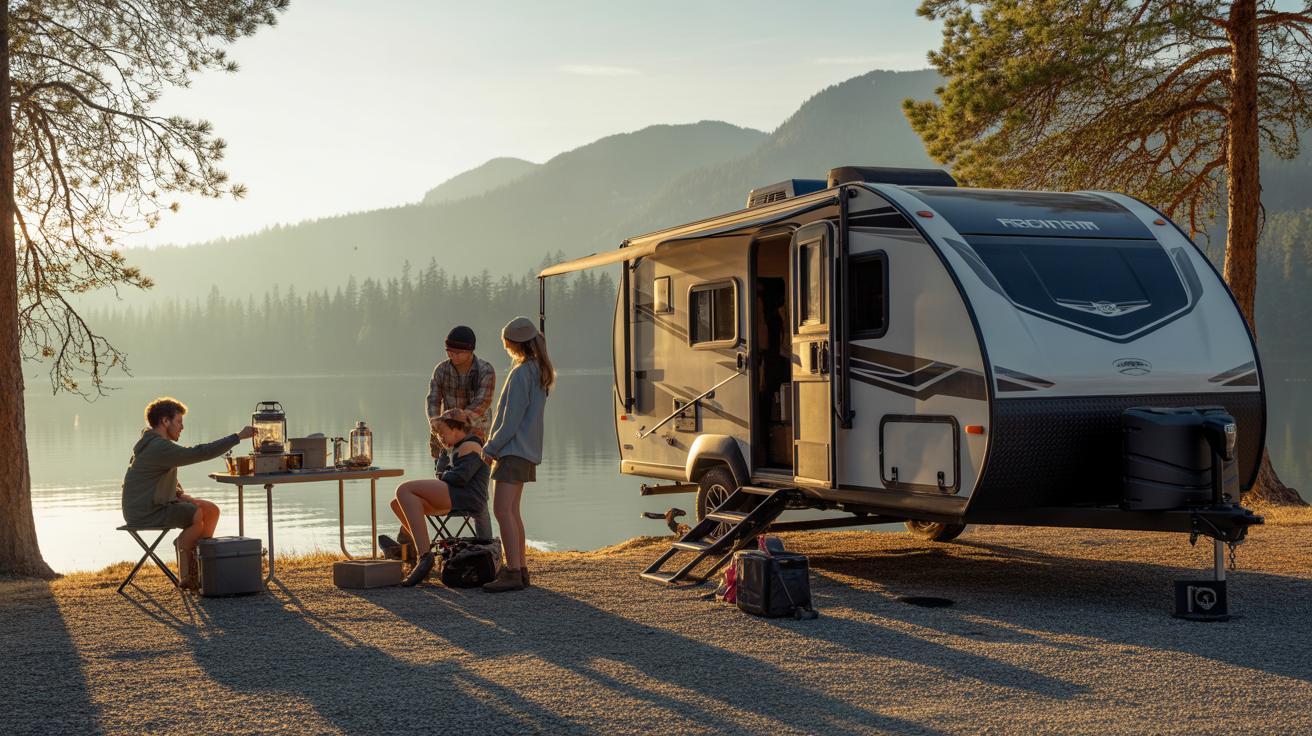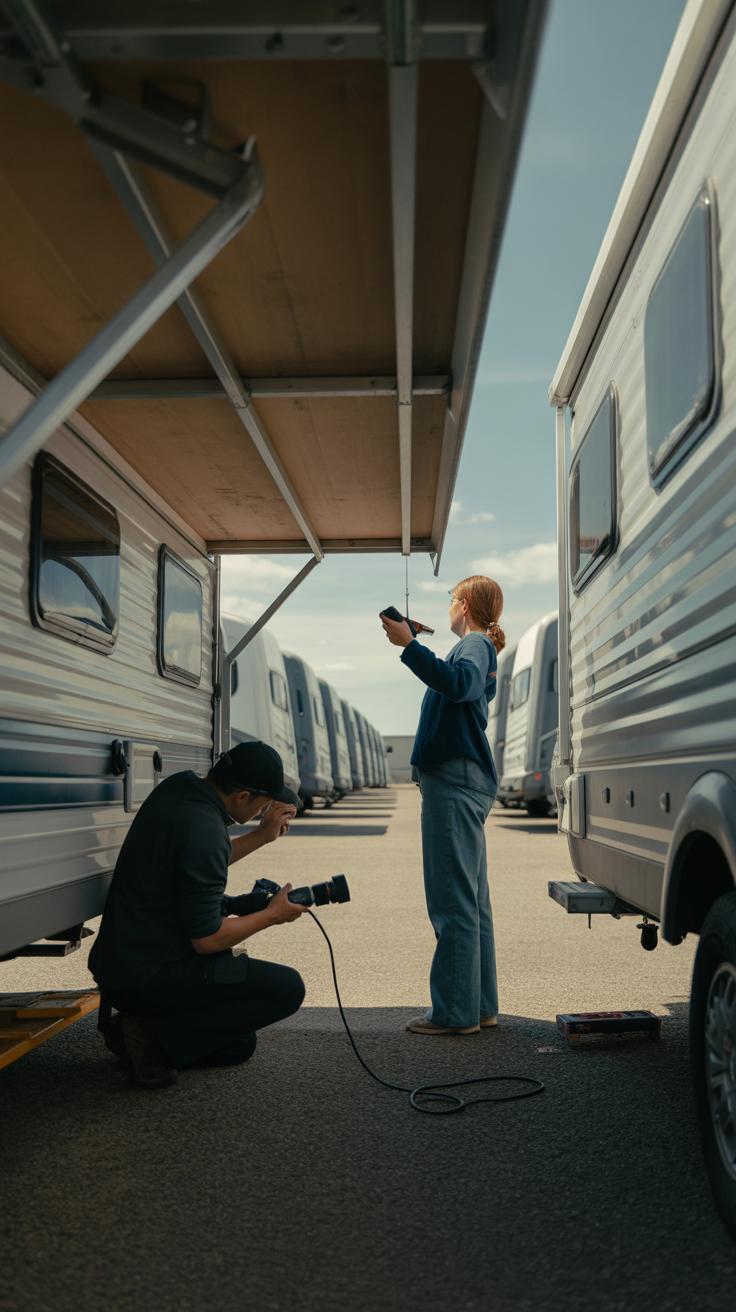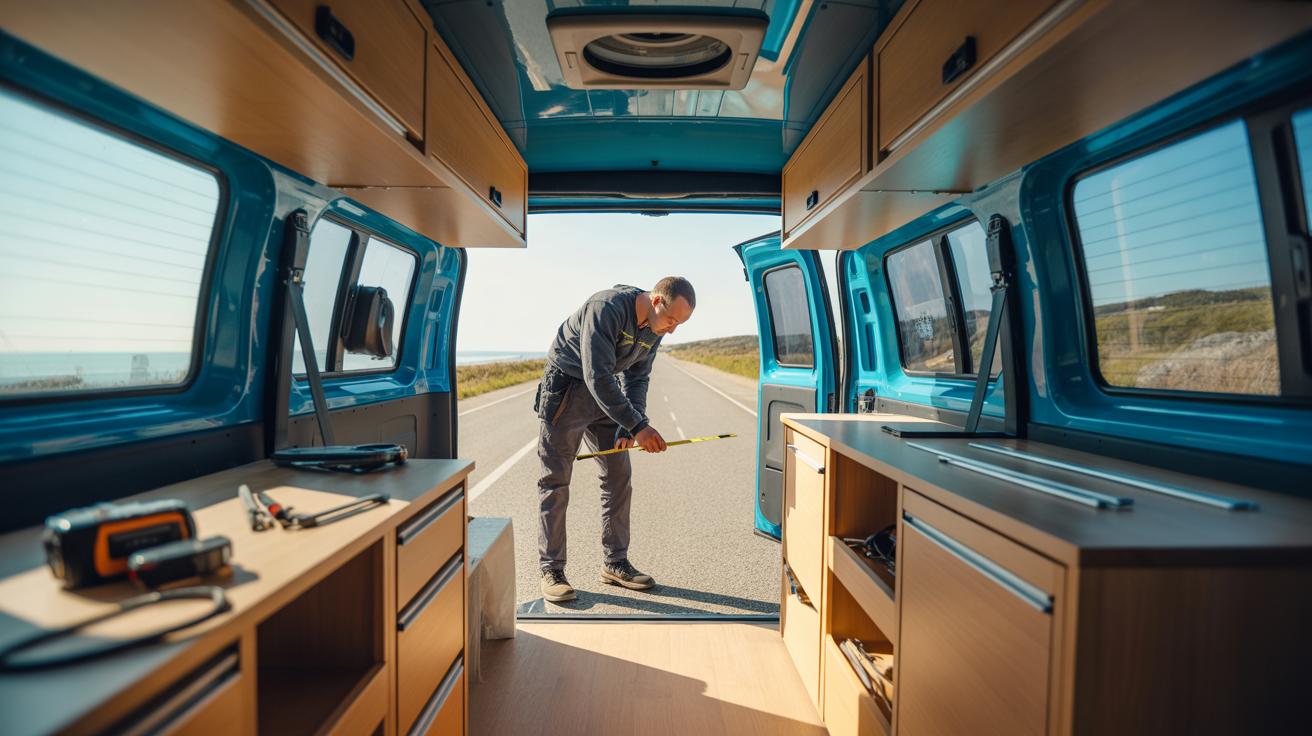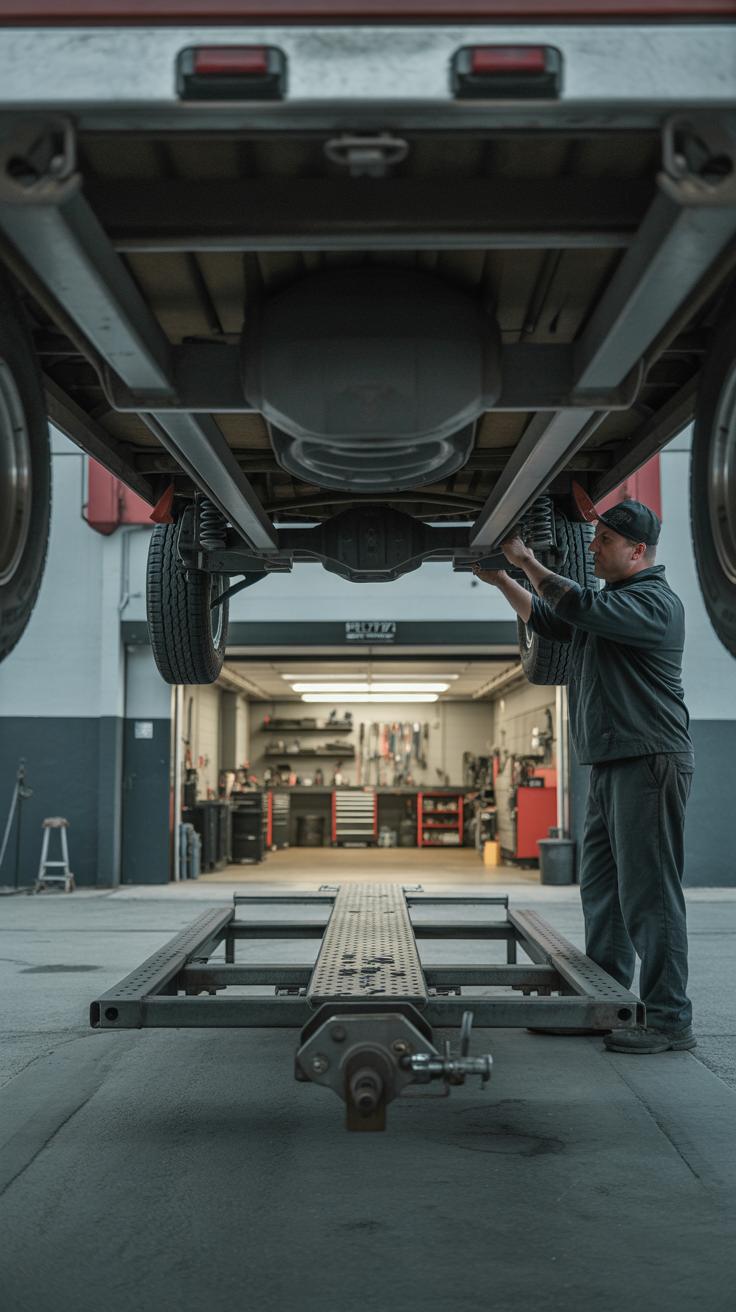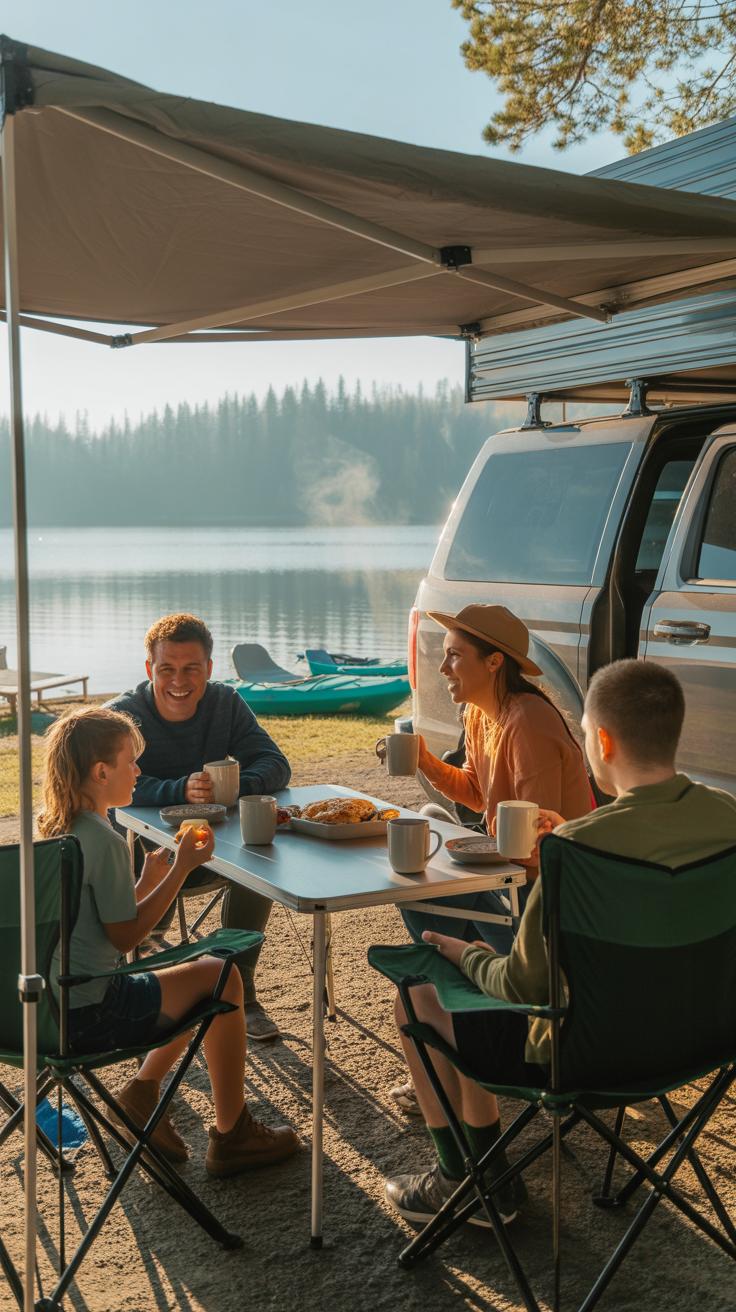Introduction
Choosing the right truck camper can shape your outdoor experiences. A truck camper lets you explore nature while having a comfortable place to stay. It’s a unique way to enjoy freedom on your adventures.
In this article, you will learn how to pick a truck camper that matches your lifestyle. From types to features, and practical tips, everything you need to know is here. Get ready to find your ideal camper.
Introduction to Truck Campers
What is a Truck Camper
A truck camper is a compact, self-contained living unit designed to fit into the bed of a pickup truck. Instead of pulling a trailer, you load this camper directly onto the truck’s bed, creating a unique travel setup that combines mobility with convenience. The camper typically extends over the cab of the truck, giving you extra space for a sleeping area without shrinking your living quarters. Inside, you usually find essentials like a small kitchen, a bed, and some storage. The idea is to have a mobile shelter that can quickly pack up and go wherever the truck can take you.
Truck campers have been around for almost a century. They started appearing in the 1950s when pickup trucks grew popular in the U.S., mostly among outdoorsmen and fishermen who needed a simple way to stay overnight near work or fishing spots. Over time, they evolved from makeshift wooden boxes to sophisticated off-road models with modern conveniences.
Why Choose a Truck Camper
More people are choosing truck campers these days, and for good reasons. One big advantage is flexibility. You drive the truck, then just slide the camper on or off, which means you can use the truck alone when you don’t need the camper. It makes daily errands simpler. Also, they can access places that trailers can’t — narrow mountain roads or sandy trails, for example.
For outdoor lovers, truck campers offer a mix of shelter and mobility. You get the thrill of small, cozy spaces paired with the power to explore remote locations. For someone who likes spontaneous trips or loves camping without the fuss of bigger RVs, they make sense. Not to mention, they often cost less than a full-sized motorhome or travel trailer and fit better in tighter parking spots.
Still, truck campers aren’t perfect for everyone. Their space is limited compared to larger RVs, and setup can take a bit of time if you’re often moving in and out. But if you value travel freedom and want a real connection with the road and outdoors, they might just be the right fit. What kinds of adventures do you see yourself doing with one? That’s something to think about as you explore options.
Types of Truck Campers Available
Truck campers come in a handful of main styles, each with its quirks and advantages. You’ve got your slide-in models, which are basically designed to slide right into the bed of your truck. They sit low and close, letting you keep a lower center of gravity. That usually means better driving stability, especially on twisty roads or rough terrain. But, space inside can feel a bit snug, which might be a dealbreaker if you want more room to move around or sleep comfortably.
Then there are cab-over campers. These extend over the truck’s cab, giving you extra headroom and a dedicated sleeping area up front. They’re bulker, sure, and raise your profile when driving, but that extra space often makes a big difference when you’re spending multiple days inside. The raised sleeping nook can feel like its own little retreat, but you might find it awkward to climb into or out of, depending on your truck and setup.
Beyond these are specialty and custom campers. Some are built for specific purposes, like hardcore off-road use, hunting trips, or even minimalist weekend escapes. These often stray from the usual designs, sometimes sacrificing comfort for functionality, or vice versa. Custom builds can reflect your personality and needs closely, but they usually come with a higher price tag—and sometimes longer wait times. You might find one with solar panels integrated or a pop-up roof, which can change your experience entirely but also add complexity.
Choosing a style really comes down to what you want out of your camper. Do you value space over drivability? Or maybe you want something that blends simplicity with practicality. It’s not always clear-cut, and maybe it shouldn’t be. What fits on paper might feel different once you’re out on the road.
Selecting the Right Size
Matching Camper Size to Your Truck
The size of your truck plays a pretty big role in what kind of camper you can actually use. You might want a large, spacious camper, but if your truck is on the smaller side, that simply won’t work well. There’s the weight to think about, of course, but also how the camper affects your truck’s handling. A heavy camper on a half-ton truck can feel unstable or reduce fuel economy quite a bit. I’ve seen people try to push their luck with oversized campers on smaller trucks, only to regret it on twisty roads or steep hills.
Think about your truck’s payload capacity and bed size. Long beds allow longer campers and more interior space, but short beds need compact units to fit properly. You want the camper properly balanced on the truck bed—not sticking out awkwardly or overloaded on one end. This makes driving safer and your trip more enjoyable.
Considering Your Travel Needs
Now, what trips do you usually take? Weekend getaways or extended adventures? The camper you pick should match those plans. If you only spend a couple of nights out, maybe a minimal setup with just the basics works fine. But if you’re going for weeks or traveling with family, space starts to matter a lot more: sleeping areas, kitchen size, storage for gear, and bathroom facilities.
Sometimes people overestimate their need for space—thinking bigger is always better—but bigger campers add weight and can limit where you go. On the flip side, if you’re too tight on space, you might feel cramped or have to leave essential gear behind. I recall a friend who took a tiny camper on a two-week trip and wished he had just a little more room to relax and cook comfortably. So, maybe ask yourself—how much space do you really want to live in? And, what conveniences can you not live without?
Choosing your truck camper’s size is a balancing act. It’s not just about fitting your truck, but also about fitting your lifestyle—and being honest with that makes the whole experience better.
Essential Features to Consider
When you start looking at truck campers, some features jump out immediately—kitchen, sleeping, and bathroom spaces are the basics you’ll want to inspect closely. The kitchen is often small but functional, usually with a stove, sink, and sometimes a microwave or toaster oven. You might find refrigerators ranging from compact 12-volt models to slightly larger ones that plug into shore power. It’s easy to overlook storage shelves and cabinetry, but trust me, these make or break your daily routine.
Sleeping setups vary a lot. Some campers have a fixed bed, while others offer convertible dinettes or bunks. Ask yourself, how important is a permanent bed for you? Sometimes the convertible spaces feel cramped, but they do save space overall.
Bathrooms in campers are often tight. You may get a wet bath where the toilet, sink, and shower share a small space, or a dry bath if you’re lucky. Not everyone loves wet baths—I get it—but having some bathroom facility on board is a comfort that’s hard to give up once you have it.
Comfort and Convenience Features
For comfort, beds are probably the first thing that stand out. A mattress quality can make a trip feel restful… or miserable. It might seem trivial until you wake up stiff and aching. Refrigerators keep your food fresh, and most campers include one, but check their size and power source. Some run on propane, others on electricity. If you like warm spaces, heaters are common too, often propane-fueled or electric, depending on your setup. They can make cold mornings surprisingly cozy.
Other small touches matter, too. A decent lighting system, a working fan, or window screens can change your experience. These things may seem minor but add up when you camp for days on end. Sometimes it feels like these extra comforts define the line between feeling like you’re roughing it and lounging comfortably.
Advanced and Off-Grid Options
If you plan to stray away from campgrounds and electrical hookups, look for off-grid capabilities. Solar panels are a popular choice for recharging batteries quietly and without fuel. They don’t provide huge power but are enough for lights, charging devices, or running a small fridge. Water tanks can vary in size, and bigger tanks mean fewer stops for refills, though they add weight.
Generators offer reliable power but come with noise and maintenance concerns. Some campers also include inverter systems to convert DC battery power to household AC power. What’s crucial is balancing your power needs with your willingness to carry extra gear—or tolerate some outages. You might want off-grid freedom but worry about extra weight or complexity, and that’s okay—it’s a trade-off each camper handles differently.
Evaluating Build Quality and Materials
When it comes to truck campers, build quality isn’t something you want to overlook. It affects how long your camper lasts and how safe you feel inside it. After all, you’re living in that small space, often in remote or harsh conditions. So, strong materials and solid construction matter more than you might initially think.
Common materials used include aluminum, fiberglass, and wood. Aluminum is lightweight and rust-resistant but can dent easily. Fiberglass offers good insulation and a smooth finish but might crack if treated roughly. Wood, often part of the interior framework, feels warm and sturdy but may swell with moisture if not sealed properly. Each has its trade-offs, so knowing what’s inside your camper’s walls helps.
To figure out if a truck camper is well-built, look closely at these signs:
- Tight seams and joints. Gaps or uneven edges could invite leaks or drafts.
- Quality of the cabinetry. Are doors solid or flimsy? Do drawers slide smoothly?
- The weight of doors and windows. Heavy, firm feels often mean sturdier materials.
- Visible fasteners. They should be flush and rust-free, not just slapped on.
- Floor stability. Give it a solid stomp—any bounce or creak hints at underlying issues.
Sometimes you can tell a camper feels “right” the moment you step in, even before checking specs. Other times, the surface looks good, but the details tell a different story. Have you ever walked into something that seemed perfect, only to find a weak spot hidden away? That’s why taking your time matters.
Budgeting for Your Truck Camper
When setting a budget for a truck camper, the price tags you see can vary a lot depending on size, features, and brand. Small, basic slide-in campers might start around $10,000 to $15,000. Mid-range models, often with more amenities and better build quality, usually fall between $20,000 and $40,000. If you’re looking at larger, high-end campers with fancy systems or custom options, prices can easily climb above $50,000.
Keep in mind, what you pay upfront is just one part of it. A camper might look affordable but could require extra spending you don’t immediately see.
Here are a few costs that can sneak up on you:
- Maintenance and Repairs: Roof seals, plumbing lines, and electrical systems all need regular check-ups, and repairs can add up. Even seemingly minor quirks can get pricey over time.
- Insurance: Some insurers treat truck campers differently than trailers or RVs. Depending on your location and coverage needs, premiums might be higher than you expect.
- Accessories: Think about extras like leveling blocks, portable generators, or upgraded batteries. They improve your experience but aren’t always included in the camper’s base price.
Planning for these costs upfront can save you stress later. Sometimes stretching your initial budget a bit avoids a tight pinch down the road.
Tips for Buying and Inspecting a Camper
When you’re ready to buy a truck camper, taking your time to inspect it thoroughly can save you headaches later. Start by checking the camper’s exterior for signs of damage—look closely for cracks, soft spots, or water stains. Don’t just glance quickly; tap around walls and roof areas to catch hidden rot or leaks. Ask about the age and maintenance history. Has it been used in harsh weather?
Inside, test all appliances and systems: fridge, stove, heater, water pump, and lights. Turn on the water system and watch for leaks under sinks or connections. Inspect seals around windows and doors; these are often trouble spots for drafts or leaks. Ask if any repairs or part replacements have been done, and whether warranties transfer to you.
Mechanical hookups matter too. Check jacks and tie-downs—are they sturdy and corrosion-free? Look under the camper for rust or damage on the frame. If possible, take it for a quick test drive with the camper mounted, to get a feel for how it rides and fits on your truck.
Inspecting a Camper Before Purchase
Step through the camper slowly. Open cabinets and closets, check floors for softness, and verify that windows open smoothly. Pay attention to odors; musty smells often point to hidden moisture problems. Run each electrical outlet and appliance, if power is available.
If you can, get a professional inspection. An expert might spot structural issues you’d miss. Ask the seller if they mind—sometimes they’ll welcome it. Don’t be shy about asking detailed questions like: “Have there been any leaks?” or “What repairs have been made this year?”
Dealer vs Private Seller
Buying from a dealer usually offers more security—a formal warranty, easy financing, and sometimes maintenance services. Dealers often inspect and repair campers before selling, making it less risky. But prices tend to be higher, and you might end up with less room for negotiation.
Private sellers often price their campers lower, which can be tempting. But you’ll need to be more diligent checking for issues. No warranty means you take on the risk. Still, if you’re confident in your inspection skills or use a professional, private sales can turn into considerable savings.
Think about what matters most to you here. Would you rather pay more for peace of mind, or try your luck to save some cash? It’s not always a straightforward choice.
Preparing Your Truck for a Camper
Truck Compatibility and Load Limits
Before you even think about putting a camper on your truck, you need to check if your vehicle can handle it. Not all trucks are built the same. It comes down to the gross vehicle weight rating—often called GVWR—and the payload capacity. These numbers tell you how much weight your truck can safely carry, including passengers, gear, and the camper itself.
Look in your owner’s manual or on the door jamb sticker for these weight limits. Don’t forget to include the weight of the camper plus anything inside it—water tanks, gear, supplies. Sometimes, people overlook the extra weight those little details add. If your camper exceeds those limits, you might risk damaging your truck or worse, compromise safety on the road.
Sometimes, the size and weight of the camper just won’t match your truck’s capacity. If that’s the case, you may have to consider a smaller camper or a different truck altogether. It’s a tough call, but getting that part right saves headaches down the road.
Installing and Securing Your Camper
Mounting your camper isn’t as simple as just hauling it up and plopping it on the bed. You want to be sure it’s secured properly to avoid any shifting while driving or, frankly, worse mishaps. Usually, truck campers come with tie-down brackets and turnbuckles—use them. The tie-downs anchor the camper firmly, while the turnbuckles help keep it snug against the truck bed.
When I first tried mounting a camper, I underestimated the patience it takes to get everything aligned and tightened correctly. You should put the camper on level ground and check that it sits flush with the truck bed. Then, secure all tie-down points — front, back, and sides. Tighten each turnbuckle carefully. Too loose, and the camper shifts; too tight, and you might stress parts unnecessarily.
Check the mounts again after your first few drives. Vibrations and bumps can loosen things that may seem solid at first. Oh, and remember to confirm the camper’s clearance over your tailgate, so it’s not putting pressure there when fully mounted. Getting this prep done right matters more than you might expect.
Maximizing Your Truck Camper Experience
Living and traveling with a truck camper can change how you connect with the outdoors, but it takes a bit of adjustment. Space is tight, so every item you pack or store matters. You’ll want to think through what you really need versus what feels nice to have. I sometimes find myself overpacking, then regretting the clutter that follows.
Packing and Organizing Tips
Think vertical. Use hanging organizers or magnetic strips on walls for small tools, utensils, or gadgets. Drawers can quickly become junk drawers if unchecked, so divide them with small boxes or trays. Keeping things visible helps—you don’t want to dig through a pile just to find a flashlight.
Pack multipurpose items when possible. A cutting board that doubles as a tray, or a pot that serves as a storage container, saves you space and hassle.
One trick I picked up: roll clothes instead of folding. It really does save room, especially for casual outdoor wear that doesn’t crease easily. Regularly reassess what’s actually used. If you haven’t touched something in days, maybe it’s not necessary.
Maintaining Your Camper on the Road
Small maintenance tasks keep your camper running smoothly and spare you trouble later. Clean the roof and check seals for cracks every few weeks; water leaks can start slow but get worse fast. I once ignored a minor crack and ended up with a soggy ceiling after rain—always better to check early.
Keep an eye on tires and jacks, too. Make sure jacks move freely and tire pressures match the recommended levels. Also, wipe down exterior surfaces to prevent buildup of grime which could degrade materials over time.
Inside, regularly flush and sanitize water tanks if you have them. Also, test your battery levels and connections before and after longer drives. These routines might feel tedious but have saved me more than once from unexpected breakdowns or discomfort.
Traveling with a camper—your camper—is about finding a flow that suits you. Maybe some days the organization feels perfect, other days, clutter creeps in. That’s normal. Just keep adjusting, and you’ll shape a lifestyle that fits your outdoor pace.
Conclusions
Picking a truck camper is more than just buying a product; it’s about choosing a companion for your travels. Reflect on your needs and preferences as you explore the options.
With the right knowledge and tools, you can select a truck camper that fits your outdoor life perfectly. Your adventures will be more enjoyable and comfortable with the right choice.

